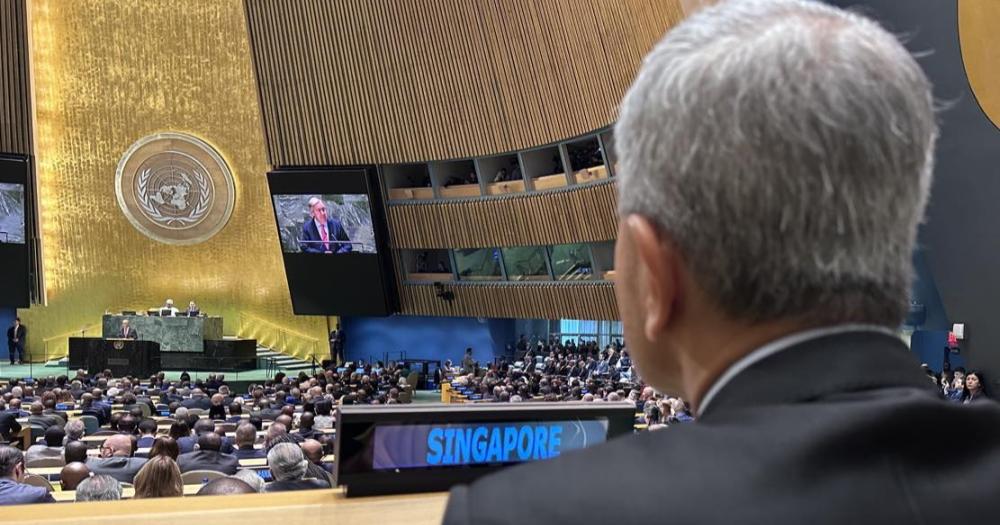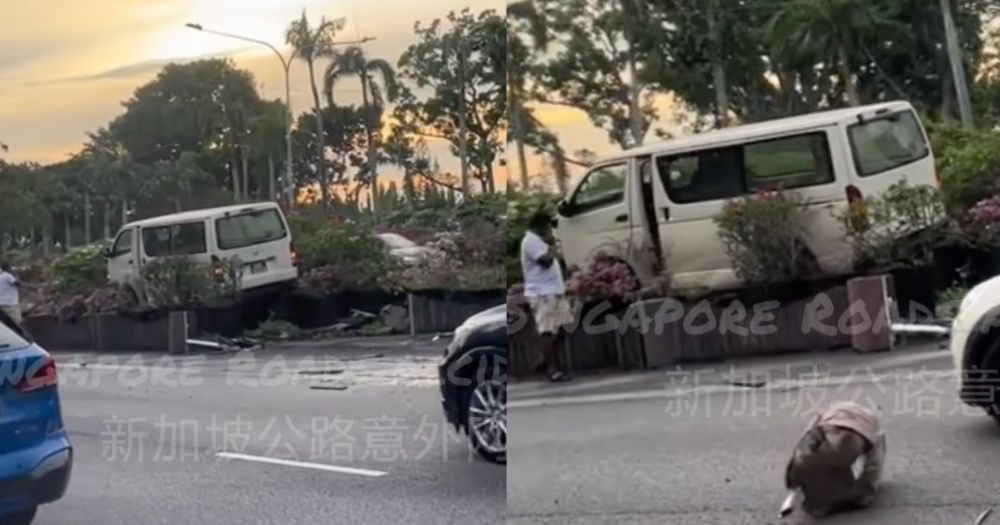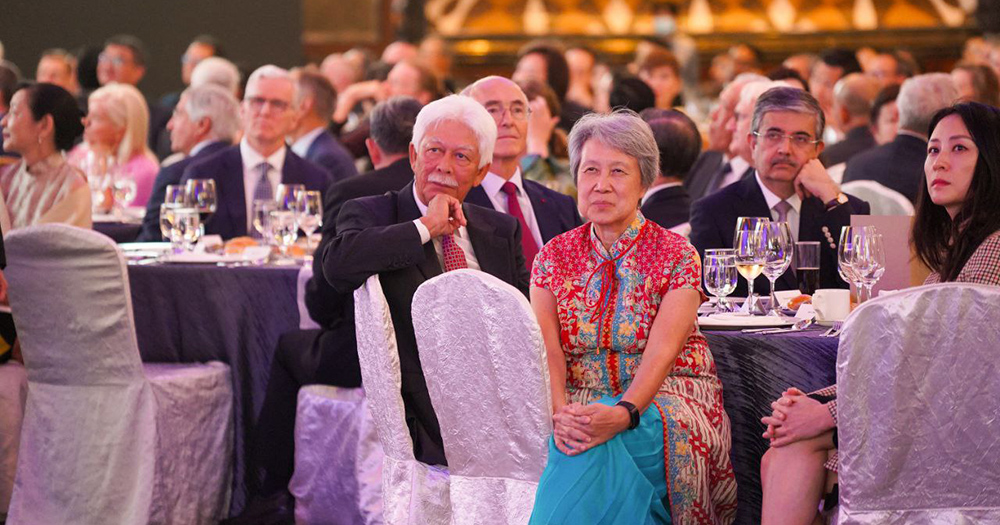Voter concerns, memes, ideology: IPS panel on issues likely to impact next S'pore GE
The session was conducted at the launch of the 2023 Asian Barometer Survey conducted by IPS.
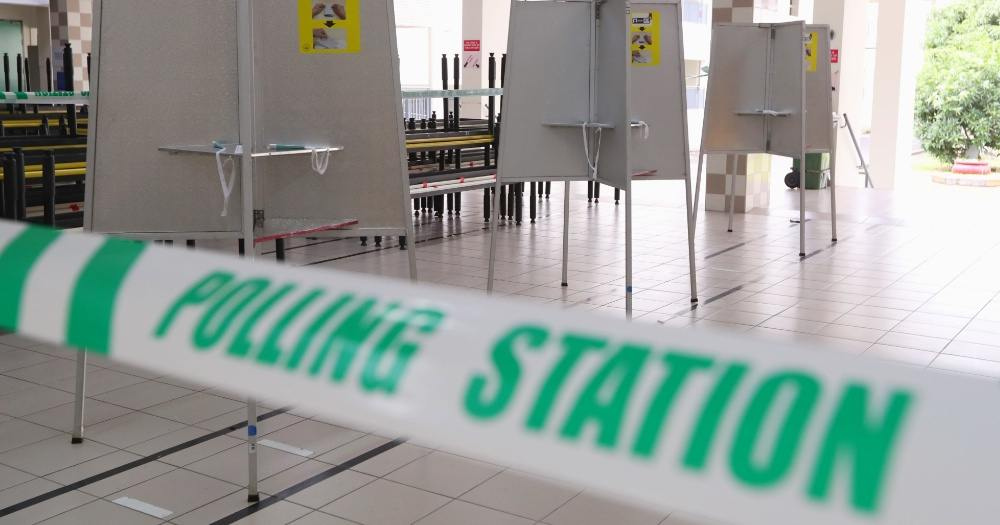
"Elections are all about timing", shared Associate Professor Walid Jumblatt Abdullah of Nanyang Technological University, referencing the hypothetical scenario of a train breakdown the week before an election.
He was speaking at the Institute of Policy Studies (IPS) Forum on Singaporeans' Political Attitudes in the morning of Sep. 27, in a session titled "Other views of Singaporean Voters".
Alongside Walid on the panel were Associate Professor National University of Singapore Natalie Pang and East Asian Institute's Principal Research Fellow Lam Peng Er. The panel was moderated by Institute of Policy Studies Research Fellow Teo Kay Key.
Each of the panel members gave a short presentation before they fielded questions from the audience.
They covered topics ranging from comparative governance in Asia, to likely voter concerns in the upcoming elections, and the role of the internet in shaping political participation and expression, amongst others.
Walid focused largely on concerns weighing upon voters' minds, and how such factors could affect election results.
Pang, who helms the Department of Communications and New Media in NUS, shed light on the changing methods of online participation and how memes, in particular, are something voters use to discuss politics.
Pang also spoke about how parties themselves are connecting with voters online, and the implications of doing so.
Meanwhile, Lam referenced Taiwan, South Korea, and Japan, and compared their systems of governance and underlying ideologies with Singapore's own system.
He observed that while Singaporeans are "conditioned to be pragmatic", the ruling People's Action Party (PAP) has "cultural hegemony" in Singapore which influences Singaporeans' impressions of government.
Possible concerns of voters
Walid outlined possible concerns that voters could have, namely: the rising cost of living, the government’s stance towards global issues, the perceived fairness of elections, the quality of candidates, and how the upcoming election might be seen as a referendum on the 4G leadership.
Rising cost of living
Walid said bread-and-butter issues, particularly the rising cost of living, are at the forefront of voter's minds.
"It's something that people go through on a daily basis", he added, highlighting how the repeated reminders could influence people's decisions.
He cited the example of how some Housing and Development Board (HDB) flats have been sold for over a million dollars, and said the high prices could be a "psychological barrier" that could potentially work against the ruling party.
He acknowledged that problems like these were complex, saying:
"It's an inherited problem, and it's almost impossible to resolve without angering a significant segment of the electorate."
Government's stance towards global issues
Walid said how the current government reacts and handles global issues is another key aspect that voters closely watch.
Citing the example of the ongoing Israel-Hamas conflict, Walid said there have been "discernible shifts" in the way Singapore has reacted to the conflict, such as voting in favour of a resolution in the UN General Assembly supporting Palestine's full membership, partaking in humanitarian efforts and having "strong statements" articulated by ministers.
He said the government's overall approach toward Palestine has remained consistent, but reiterated that there was a "discernible shift".
"I think [it] shows that [the government] also recognises that this is a significant electoral issue, for some segments — maybe not the majority of Singaporeans — but a significant number of people."
Fairness
On the topic of fairness, Walid suggested that "there was a rejection of unfair tactics" in GE2020, such as public criticism by the PAP of Singaporean playwright and poet Alfian Sa'at.
He said the anticipated redrawing of electoral boundaries could also create perceptions of unfairness and "discussion on gerrymandering".
Quality of candidates
Looking back to GE2020, Walid suggested the results showed that Singaporean voters care deeply about both the quality of the individual candidates and their party.
The quality of candidates and their party is important especially given our first-past-the-post system, he said.
The role of the internet in elections
Pang shared how the internet has changed political participation.
Within the realm of social media, Pang said memes are an example of how voters are engaging in politics online.
Pang shared how memes, which are often framed to be humorous or satirical, are a means of "depoliticising" issues by way of "taking away the politics" and making the issues more personal and relevant to their own individual lives.
"There's increasing evidence for this — memes are a way for citizens to talk about politics, to engage in political participation. It is more likely for them to use memes as a way to do so, because of the way it's framed with humour, framed with satire."
The power of memes have also been key in "overtaking what should have been significant moments for parties", shared Pang, who referenced to the withdrawal of potential PAP candidate Ivan Lim, right when the PAP was about to launch their manifesto.
Pang also spoke about social media and its possible impact, as voters use social media as a source of information and to express their opinions about the election.
Comparative governance in Asia
Lam also compared the forms of democratic governance in Asia, highlighting the differences between Singapore, Japan, Taiwan, and South Korea.
“Singapore had the most favourable outlook on their system of governance”, shared Lam.
However, Lam explained that matters of ideology could influence electoral results moving forward.
"I think the PAP has a cultural hegemony in Singapore," Lam said, saying that the party is "actually very very ideological".
"Cultural hegemony means we accept certain norms, certain values, as common sensical, as desirable," he explained.
But Lam said he expected greater pluralism in Singapore due to the "different mindset" of younger generations.
"Down the line, I think the PAP's cultural hegemony will be eroded.
Whether the PAP can reinvent itself for a new generation — I think that that will be the challenge."
Release of 2023 Asian Barometer Survey (ABS) findings
The forum was organised in line with the release of the findings of the 2023 Asian Barometer Survey (ABS) survey conducted by IPS.
An earlier session featured IPS Senior Research Fellow Gillian Koh, and was moderated by IPS Adjunct Principal Research Fellow and Academic Adviser Tan Ern Ser.
Associate Professor Eugene Tan of Singapore Management University also discussed the trends in the data.
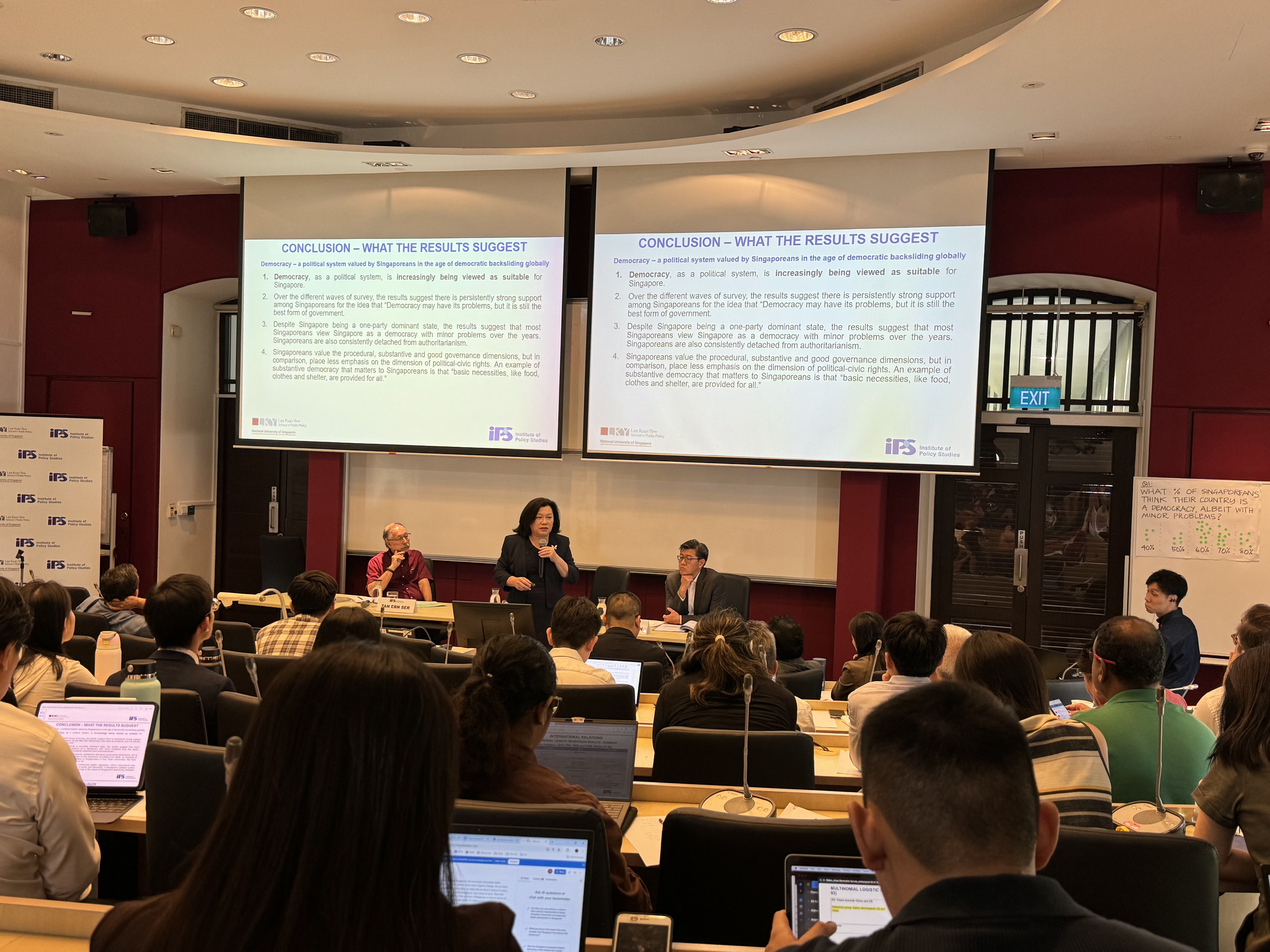 Photo by IPS.
Photo by IPS.
Top image via MDDI
MORE STORIES







